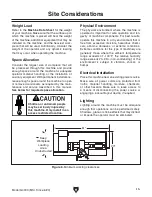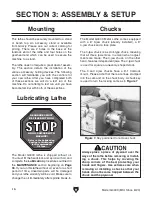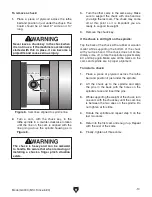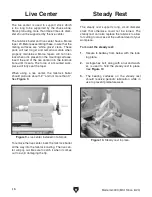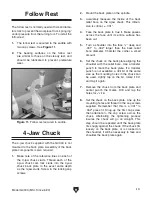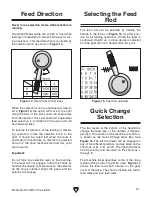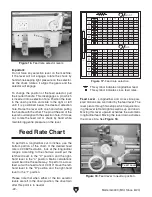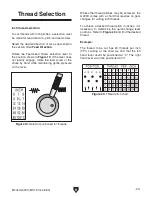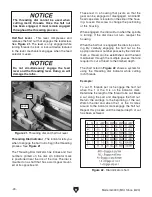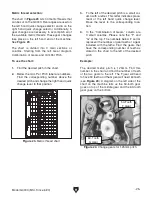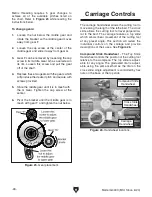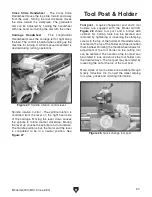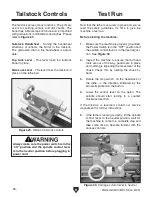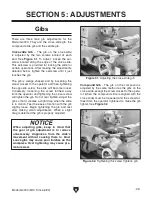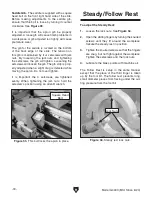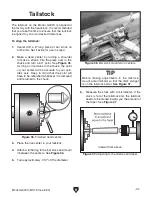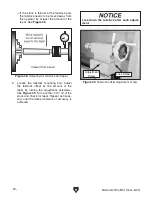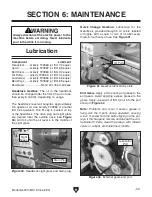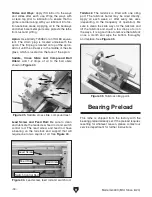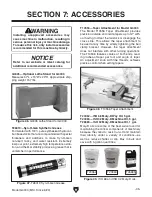
Model G4003 (Mfd. Since 6/20)
-29-
Compound Gib - The gib on the compound is
adjusted by the same method as the gibs on the
cross-slide, except the screw closest to the opera-
tor (when the compound slide is aligned with the
cross slide) must be loosened and the screw fur-
thest from the operator tightened to make the gib
tighter. See
Figure 32.
Figure 32. Tightening this screw tightens gib.
SECTION 5: ADJUSTMENTS
Figure 31. Adjusting the cross-slide gib.
There are three main gib adjustments for the
Model G4003. They are: the cross-slide gib, the
compound slide gib and the saddle gib.
Cross-slide Gib - The gib on the cross-slide
is adjusted by the two screws located at each
end. See
Figure 31. To adjust, loosen the set-
screw located along the edge of the cross-slide.
This setscrew is provided for locking the slide for
certain operations. After making the adjustments
detailed below, tighten the setscrew until it just
touches the gib.
The gib is wedge shaped and by loosening the
screw closest to the operator and then tightening
the opposite screw, the slide will become looser.
Conversely, loosening the screw furthest away
from the operator and tightening the closer screw
will tighten the gib. Do not over tighten. Adjust the
gib so that it creates a slight drag when the slide
is in motion. Test the ease of motion with the gib
slightly loose. Begin tightening the gib and test
after making small adjustments. When a slight
drag is detected the gib is properly adjusted.
Gibs
When adjusting gibs, keep in mind that
the goal of gib adjustment is to remove
unnecessary sloppiness from the slide’s
movement without causing them to bind.
Loose gibs may cause poor finishes on the
workpiece. Over tightening may cause pre-
mature wear.

